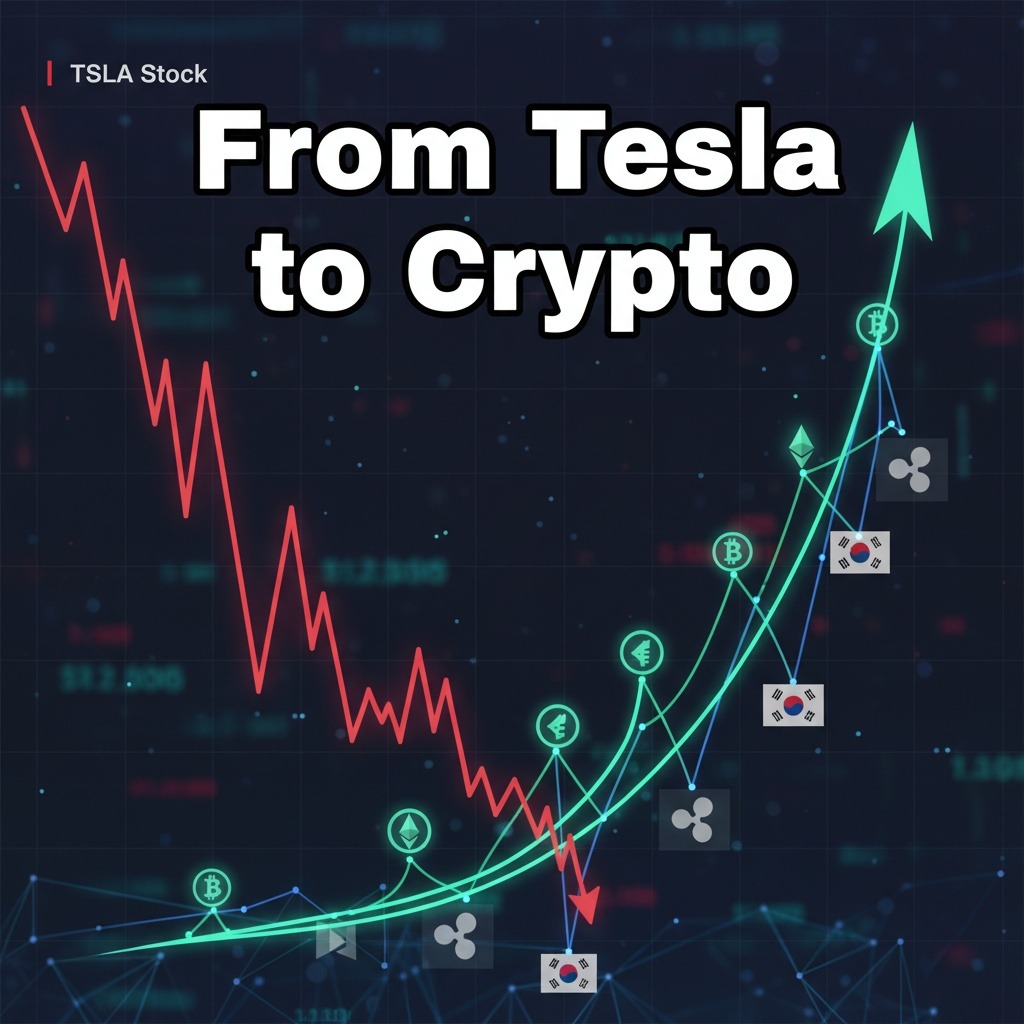South Korean retail investors have historically been major supporters of Tesla, significantly contributing to the company’s stock market success. However, recent developments indicate a marked change in sentiment. In August 2025, these investors withdrew an impressive $657 million from Tesla stocks — the highest monthly outflow recorded in over two years. This trend extends beyond equities, as investments in related financial products, such as the leveraged Tesla exchange-traded fund (ETF), TSLL, also faced significant outflows of $554 million in the same month.
Although South Koreans continue to hold approximately $21.9 billion in Tesla shares, making it their largest foreign equity investment, the recent sell-off highlights a growing unease regarding the electric vehicle giant’s prospects. This shift in confidence suggests that investors are exploring alternative investment avenues, with cryptocurrencies emerging as a leading choice.
Several factors have contributed to this substantial exodus from Tesla. Primarily, many investors are disappointed by the company’s failure to meet ambitious production targets. For example, CEO Elon Musk’s promise of launching 1 million robotaxis by 2020 remains unfulfilled, and the much-anticipated Cybertruck only commenced deliveries in late 2023, significantly behind its original timeline. Furthermore, the eagerly awaited next-generation Roadster, initially slated for a 2020 release, might only see the light of day in 2025.
Political controversies surrounding Musk also play a role in dampening investor enthusiasm. His engagements in U.S. politics and polarizing remarks on social issues have raised questions about his leadership credibility. The fallout from such events, including his contentious relationship with former President Donald Trump, has further complicated perceptions of Tesla’s future.
Additionally, the company has experienced declining sales figures, posting a year-over-year drop of approximately 13.5% in Q2 2025. Global deliveries fell to about 384,122 units, compared to 443,956 in the previous year. Particularly concerning was the 40% decline in sales in Europe in July 2025, leading to just 8,800 cars sold for the month. In stark contrast, Chinese competitors such as BYD, Nio, and XPeng have increasingly captured market share with their cost-effective and feature-rich electric vehicles. For instance, BYD markedly increased its sales in China to around 13,500 units in July, while XPeng and Nio also reported substantial growth.
The unpredictability of Musk’s leadership style, including his sudden shift in focus to AI projects and management changes, has only added to the uncertainty experienced by investors. This has coincided with a growing trend among South Koreans toward digital asset investment, where approximately one in five now actively invests in cryptocurrencies. The adoption rate has significantly surged among the younger population, reaching over 25% for individuals aged 20 to 50.
As Korean investors pivot from Tesla towards cryptocurrency stocks, the move signifies more than just a temporary shift; it reflects a broader transformation in investment priorities. The South Korean crypto market continues to thrive, driven by platforms like Upbit and Bithumb, reinforcing Seoul’s status as a global crypto liquidity center.
In conclusion, the mass withdrawal from Tesla and subsequent investment in cryptocurrencies underscore a critical phase in the relationship between South Korean retail investors and the evolving market landscape. This transition not only highlights their shifting priorities but also signals changing dynamics in global investment strategies.



